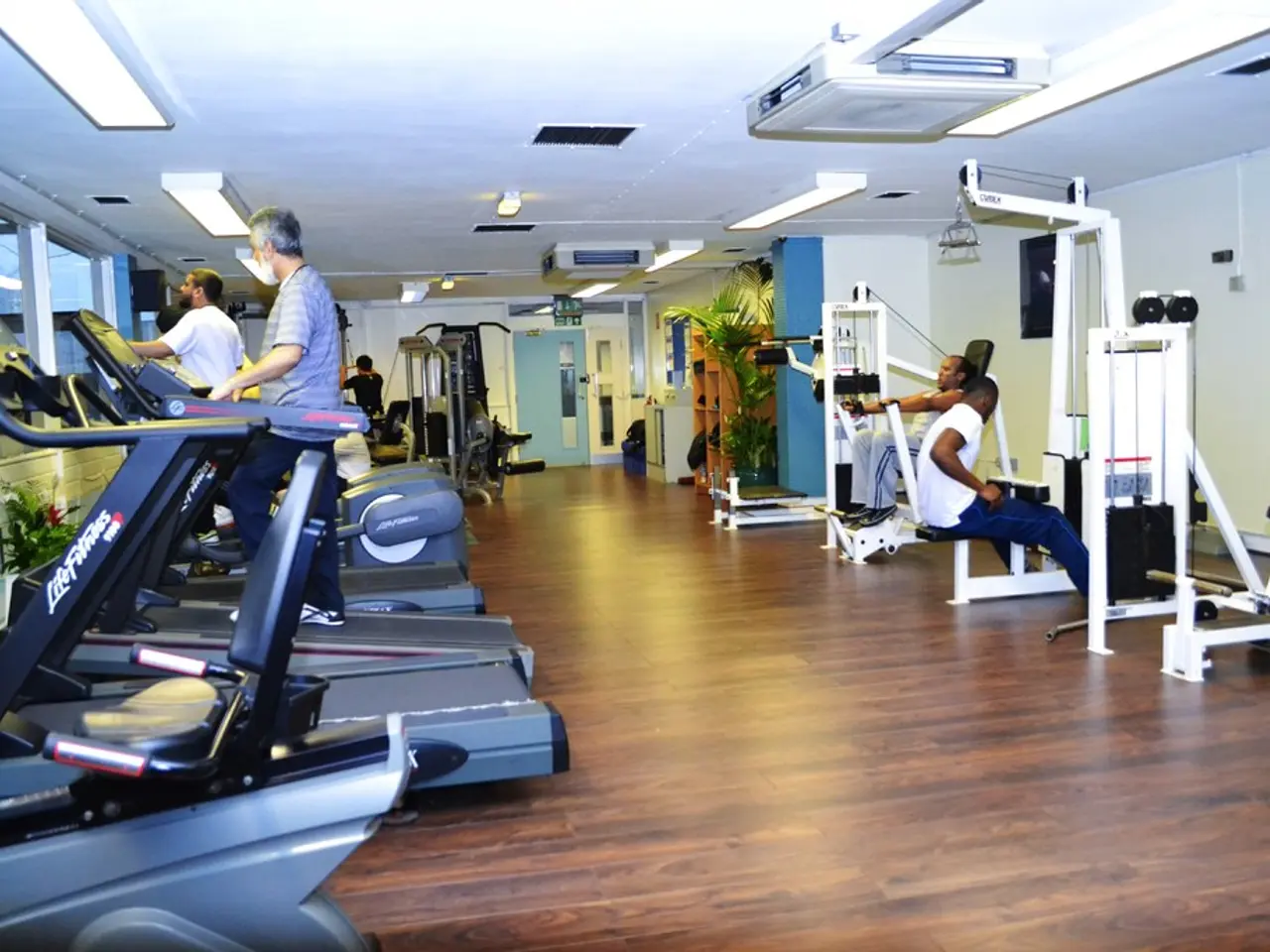Experience the Heat: An Intense Exploration
The concept of the mind-muscle connection (MMC) has gained popularity in the fitness world, and for good reason. It involves a deliberate mental focus and awareness brought to a workout, where you consciously engage the targeted muscles during each repetition of an exercise.
In yoga and Pilates, the MMC is inherent to the philosophy, emphasizing breath control and body awareness. This mindful approach extends to bodyweight exercises like push-ups or squats, where focusing on the muscles being used can modify the movement to target specific areas more effectively.
Key Practices for Building the Mind-Muscle Connection
- Intentional Focus on Target Muscles: Concentrate mentally on the exact muscle fibers you want to engage during an exercise, feeling them contract and work through every repetition. This helps you avoid letting your mind wander.
- Slow and Controlled Movements: Performing exercises with deliberate speed and control allows better sensation and activation of the muscles, improving neural recruitment.
- Incorporate Mindfulness and Breath Awareness: Using mindful breathing and body scans during workouts and rest periods increases interoception (body awareness), making it easier to notice subtle muscle activations and tension areas to adjust.
- Shift Focus from Outcome to Process: Instead of focusing on performance metrics like weight lifted or reps done, concentrate more on the feeling and quality of movement. This enhances enjoyment and reduces distractions from the mind-muscle engagement.
- Consistent Practice and Patience: Mind-muscle connection improves with practice; consistently applying focus over time helps optimize hypertrophy and strength adaptations.
By applying these methods, you effectively "activate" more muscle fibers during training, which can significantly improve workout results, muscle growth, and overall exercise efficiency. This mental engagement is foundational for maximizing gains, especially for hypertrophy training as recommended by specialists.
Benefits of the Mind-Muscle Connection
The MMC offers numerous benefits for fitness enthusiasts. It can elevate your fitness journey, improving activation, enhancing performance, and fostering greater body awareness. Introducing variability in workouts can also improve the MMC by engaging the brain more actively.
A strong MMC can help improve exercise form, reducing the risk of injury in complex movements that require coordination. It enhances workout effectiveness and overall results by improving muscle activation, form, workout intensity, body awareness, and recovery.
Greater body awareness allows for a more tailored approach to training, identifying weaknesses, imbalances, or areas that need improvement. Slow movements during exercises can enhance focus and deepen the MMC. Studies have shown that participants who consciously engage specific muscles during strength training can achieve greater muscle activation compared to those who do not.
Moreover, the MMC can play a role in recovery, enhancing blood flow and promoting better healing during recovery exercises. In isolation exercises, focusing on specific muscle groups can help build a strong MMC.
In strength training, maintaining concentration during each repetition is crucial for optimal muscle engagement. Prioritizing the MMC in your training can help you achieve your fitness goals and make the path to fitness more enjoyable, effective, and transformative. Enhanced workout intensity can result in increased endurance and strength over time, and cultivating a strong MMC can lead to faster recovery times and less muscle soreness, enabling a quicker return to workouts.
- The intentional focus on target muscles during exercises, such as feeling the contraction of each repetition, helps maintain mental engagement throughout the workout.
- Incorporating Pilates and yoga into one's fitness routine, which emphasize the mind-muscle connection (MMC), can foster improved body awareness and muscle activation.
- The mindful approach to bodyweight exercises, like push-ups and squats, aids in modifying movements to target specific areas more effectively, as it involves consciously engaging the muscles.
- Continuous practice and patience are essential for building the MMC, as consistent application helps optimize hypertrophy and strength adaptations.
- The health and wellness benefits of the MMC extend beyond physical fitness; it can also enhance recovery by promoting better blood flow and healing during recovery exercises.
- Slower movements during exercises like isolation exercises can deepen the MMC, leading to improved muscle activation and overall fitness results.
- Embracing the mind-muscle connection in one's training, by focusing on specific muscle groups and enhancing exercise form, can improve exercise intensity, promote faster recovery times, and contribute to increased endurance and strength.




